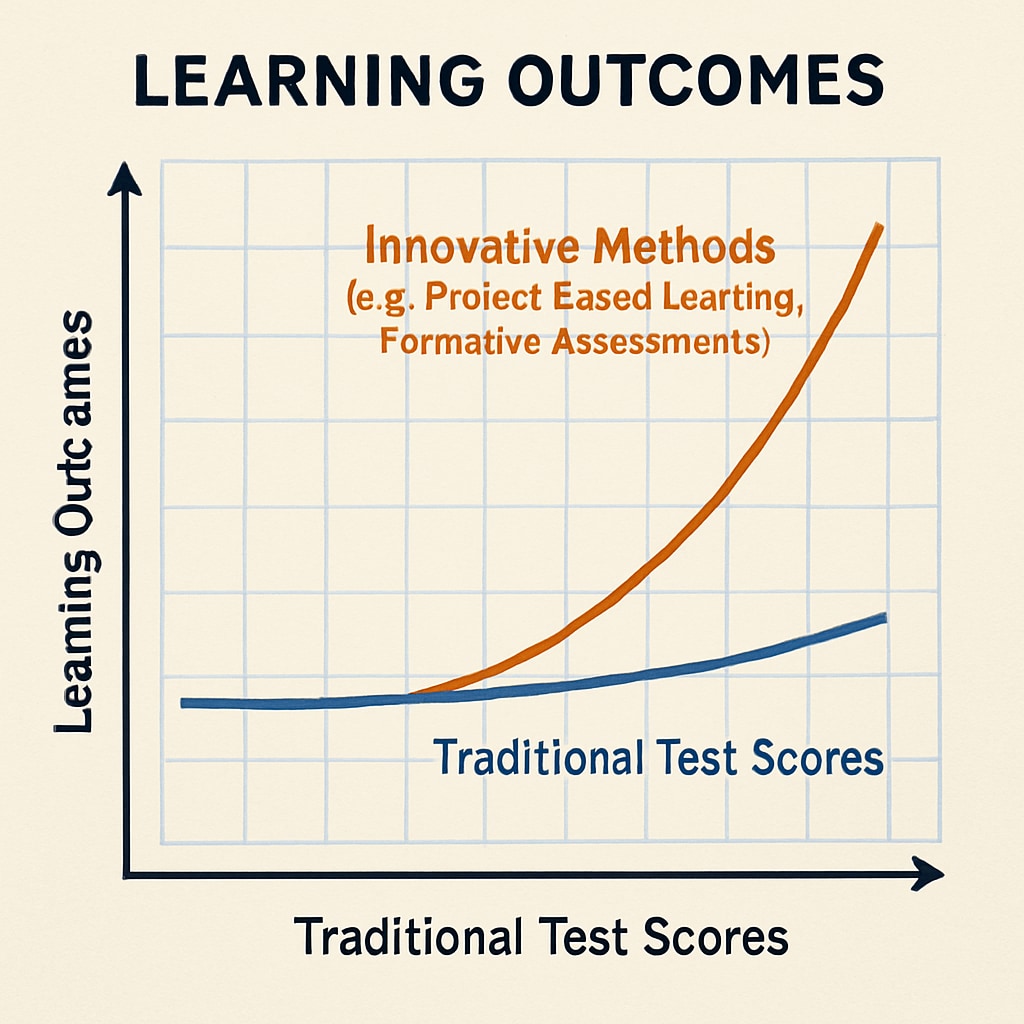In K12 education, assessment often revolves around “test scores,” which are considered the primary indicator of student achievement. However, relying solely on grades provides a narrow snapshot of learning success. To address this, educators and policymakers must rethink learning metrics and explore alternative methods that assess broader aspects of education, such as creativity, problem-solving skills, and emotional intelligence.
Why Traditional Test Scores Fall Short
Standardized test scores are widely used to evaluate student performance, but their limitations are well-documented. These scores predominantly measure a student’s ability to recall information and follow test instructions rather than examining deeper learning outcomes. For example, they fail to account for critical thinking, collaboration, or resilience, which are essential skills in the modern workforce.
Additionally, excessive reliance on scores can create unnecessary stress for students, leading to burnout and diminishing intrinsic motivation for learning. Research from Britannica highlights that standardized testing often correlates with socioeconomic factors rather than true academic ability, further questioning their fairness.

Emerging Metrics for Comprehensive Learning Evaluation
A holistic approach to learning evaluation considers multiple aspects, such as cognitive, emotional, and social development. Emerging metrics include:
- Project-Based Assessments: These assignments emphasize creativity and teamwork while allowing students to apply their knowledge in real-world contexts.
- Formative Assessments: Unlike standardized tests, formative assessments provide ongoing feedback to help students improve continuously.
- Self-Assessment and Reflection: Encouraging students to evaluate their own learning builds self-awareness and accountability.
- Peer Reviews: Collaborative evaluation fosters critical thinking and interpersonal skills.
Incorporating these diverse methods ensures a more accurate reflection of a student’s abilities and potential. For example, Finland’s education system, widely recognized for its success, employs comprehensive assessments rather than relying solely on grades or exams.

Building a Growth-Oriented Learning Framework
To implement new learning metrics effectively, schools must adopt a growth-oriented evaluation framework. Key steps include:
- Training educators to utilize diverse assessment tools.
- Integrating technology for real-time feedback and personalized learning plans.
- Engaging parents and communities to support holistic learning goals.
- Collaborating with researchers to refine and validate metrics.
As a result, students can gain a deeper understanding of their strengths and areas for improvement. This approach aligns with the principles outlined by 21st Century Skills on Wikipedia, which emphasize adaptive learning and critical thinking as vital components of modern education.
Conclusion: Rethinking Effective Learning Metrics
While test scores provide a basic snapshot of academic achievement, they fail to capture the complexity of effective learning. A comprehensive evaluation system that includes project-based assessments, formative feedback, and emotional development metrics can better prepare students for future challenges. By adopting this growth-oriented approach, educators and policymakers can redefine what constitutes true learning success in K12 education.
Ultimately, learning is not about achieving perfection on a test but about fostering curiosity, resilience, and lifelong skills. The time has come to move beyond scores and embrace more meaningful measures of educational success.


